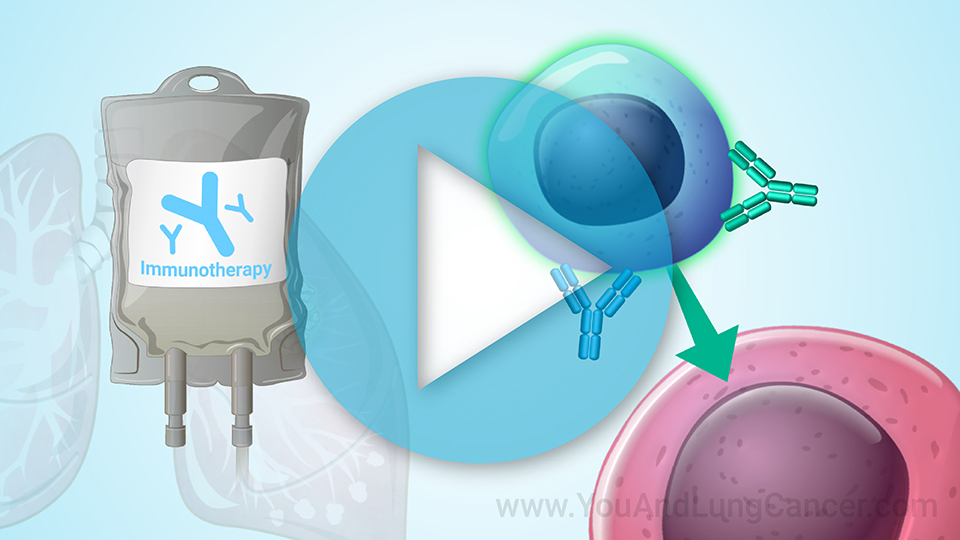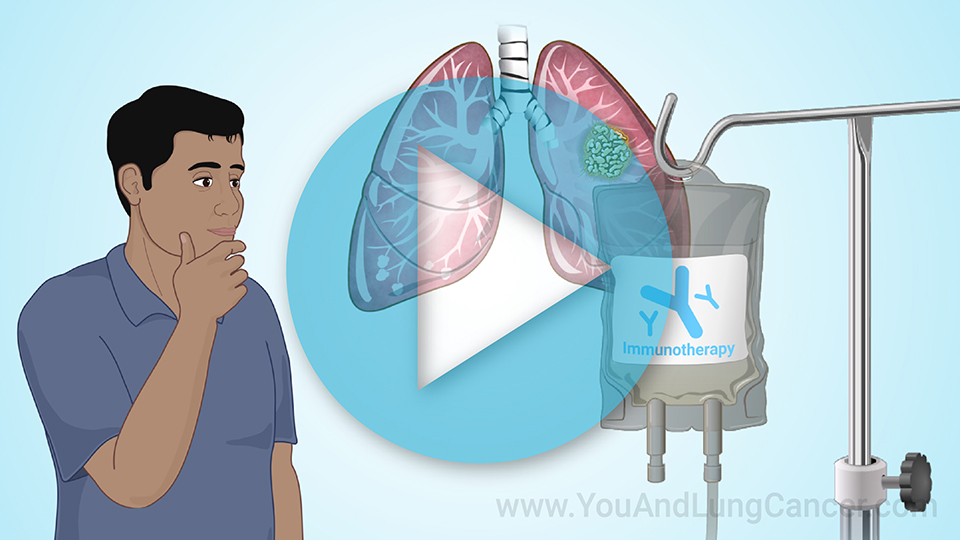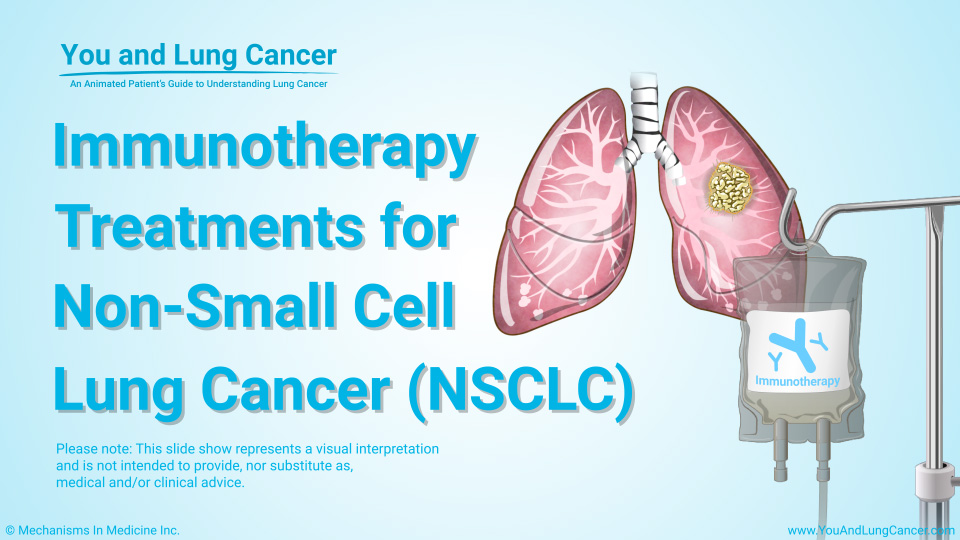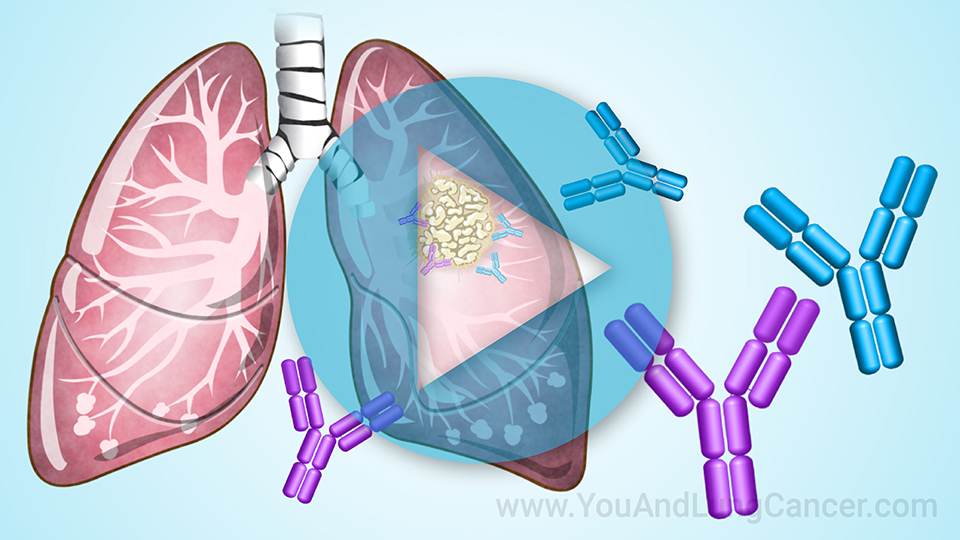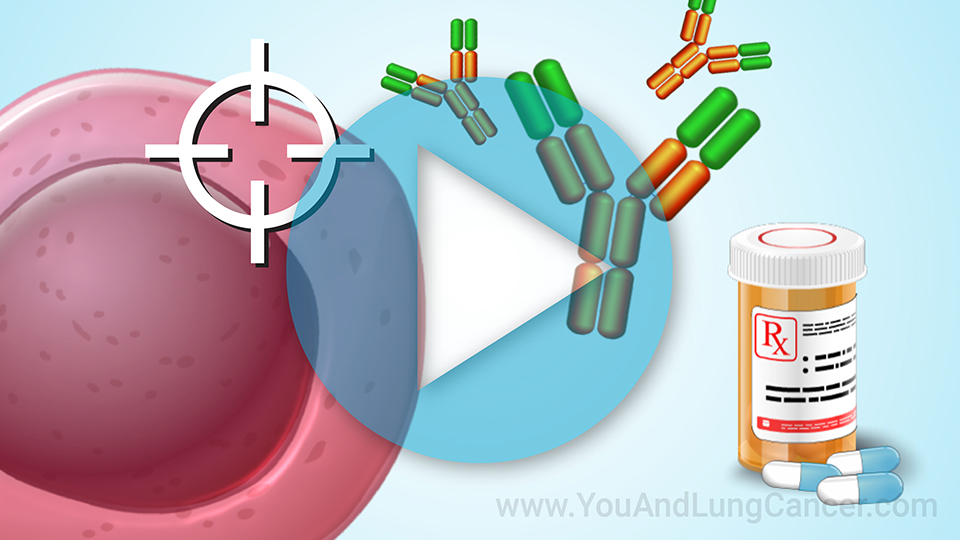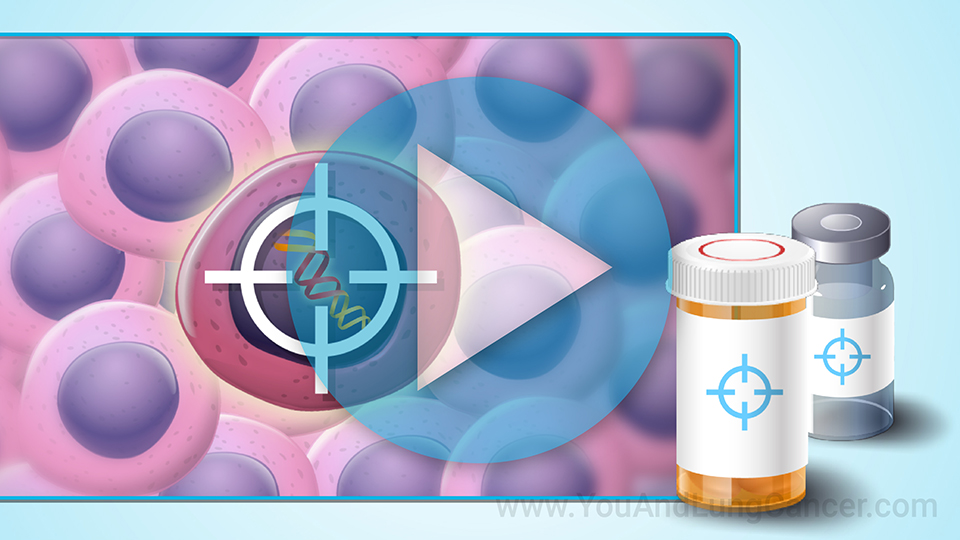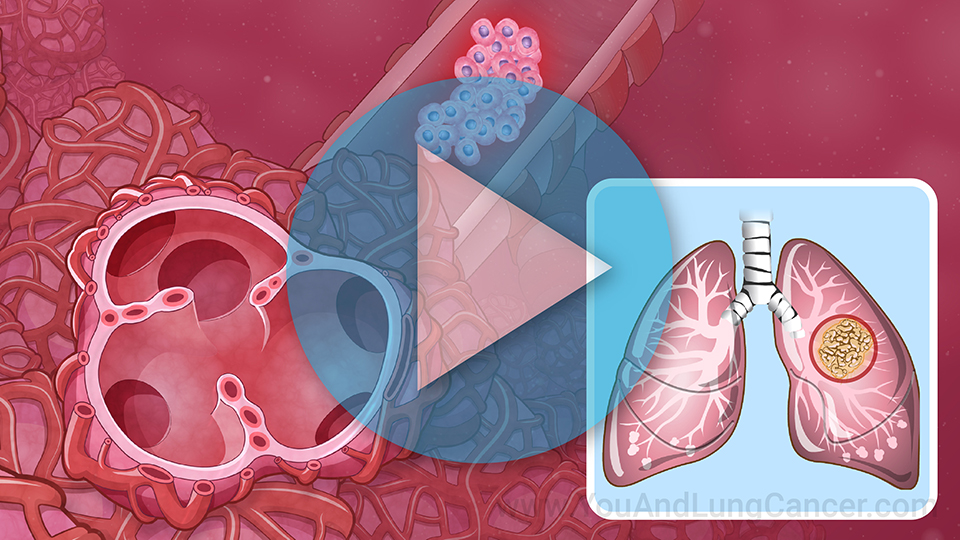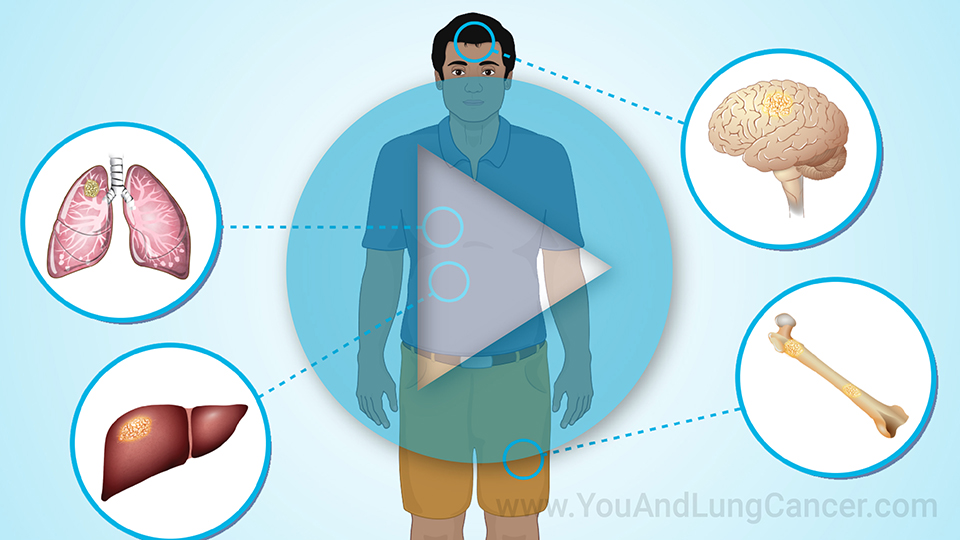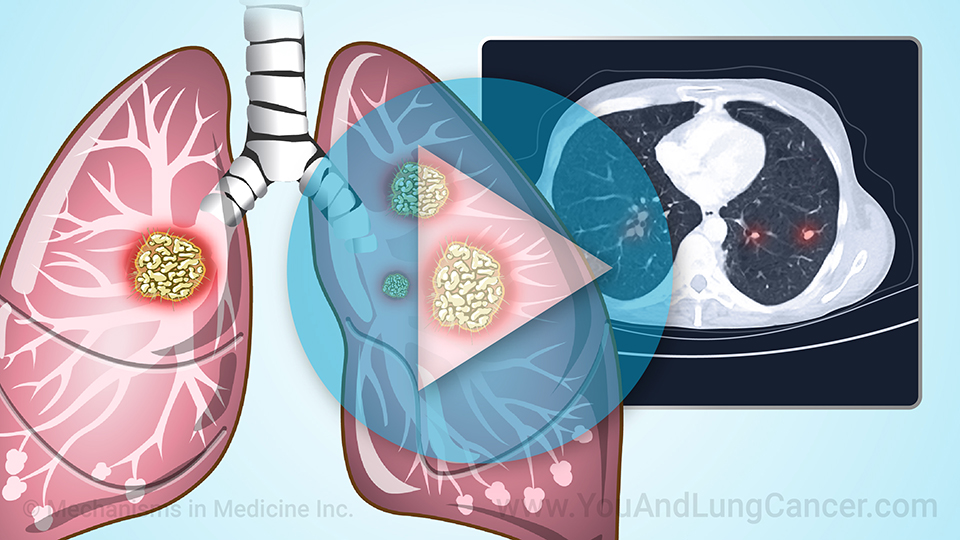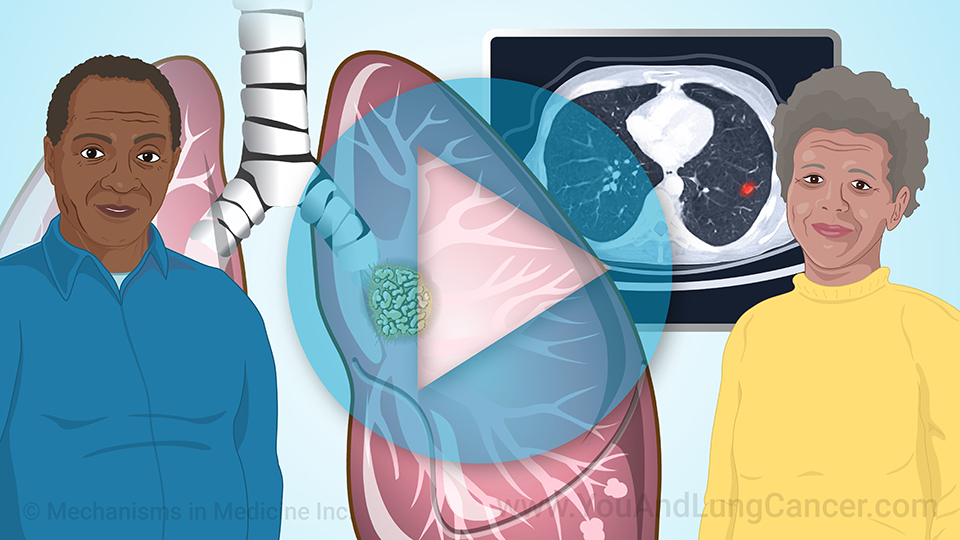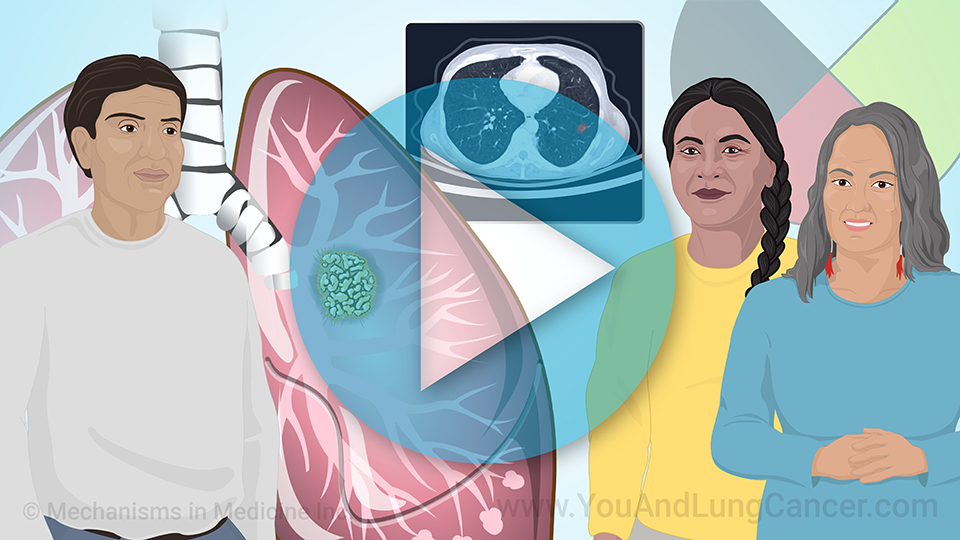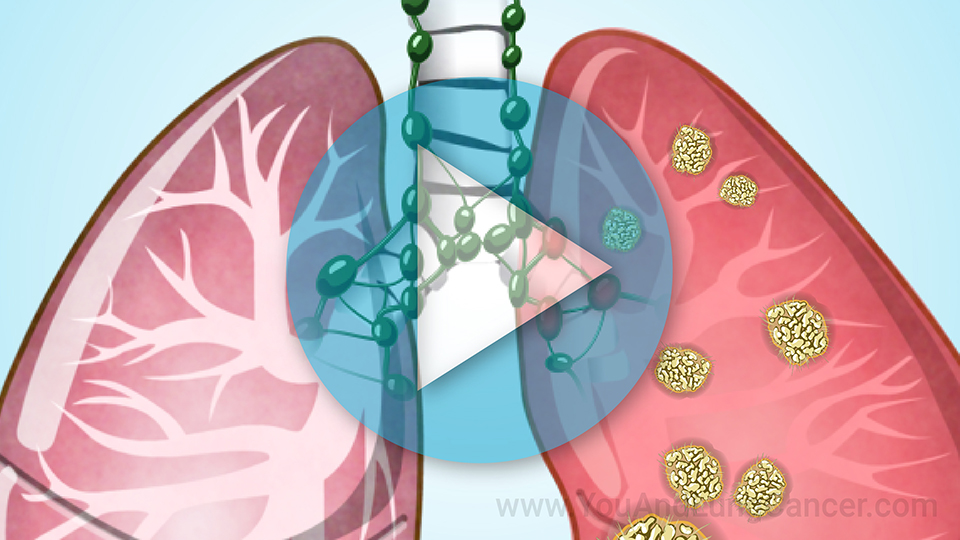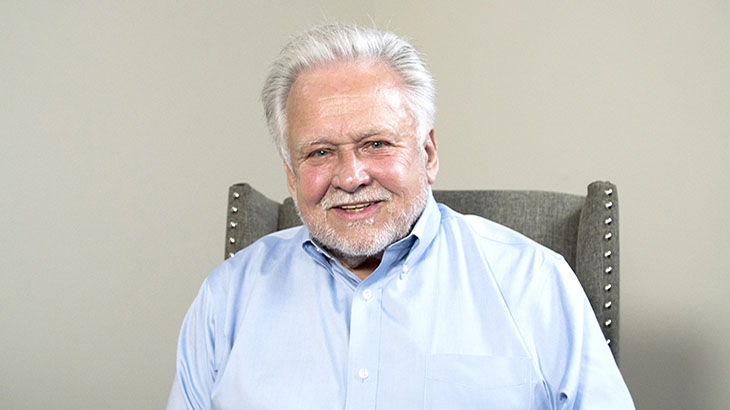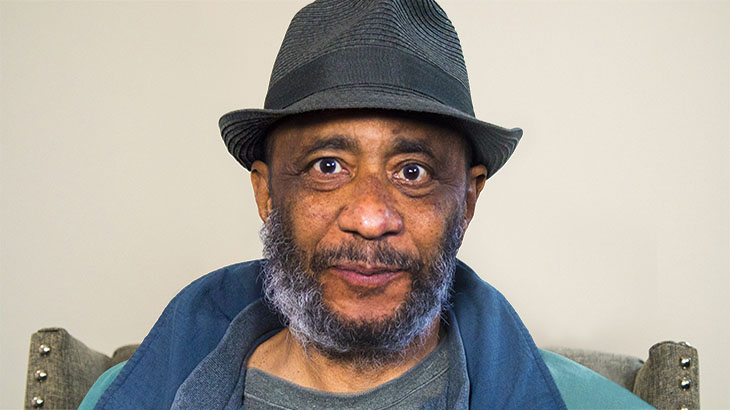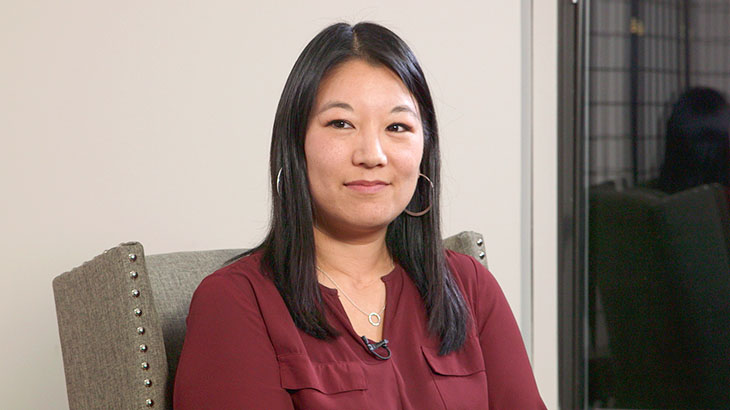Understanding Immunotherapy for Lung Cancer
*Please note: This slide show is not intended to be a substitute for professional medical advice, diagnosis, or treatment. Always consult your doctor about any questions you may have regarding a medical condition.
What is immunotherapy?
Immunotherapy is a cancer treatment that uses the body's immune system to fight cancer.
Unlike chemotherapy, immunotherapy does not attack cancer cells directly. Instead, it stimulates your immune system to recognize and attack the cancer cells.
Your immune system and cancer
The immune system's job is to fight off infections and foreign invaders that can make you sick. But it needs help to fight cancer because cancer cells find ways to hide from the immune system.
Immunotherapy drugs keep the cancer cells from hiding. This allows your immune system to do its job and destroy them.
Immunotherapy for lung cancer
The role of immunotherapy in treating your lung cancer will depend, in part, on the type of lung cancer you have.
Lung cancer is classified into two main types, based on how the tumor cells look under a microscope.
Types of lung cancer: NSCLC and SCLC
Non-small cell lung cancer, or NSCLC, is the most common type of lung cancer. Out of every 10 patients with lung cancer, eight to nine have non-small cell lung cancer.
The other main type of lung cancer is small cell lung cancer, or SCLC. One to two of every 10 patients with lung cancer have small cell lung cancer.
What are immunotherapy checkpoint inhibitors?
The immunotherapy drugs that are most often used to treat both NSCLC and SCLC are called "checkpoint inhibitors."
On the surface of cancer cells there are proteins that "put the brakes" on the immune system. They serve as “checkpoints” that stop the immune system from launching an all-out assault on cancer.
Checkpoint inhibitors work by "taking off the brakes" and giving the immune system free rein to release special cells called T cells that attack the cancer.
What immunotherapy drugs are used to treat lung cancer?
Checkpoint inhibitors can treat early-stage lung cancer before or after surgery and after radiation. They can also treat lung cancer that has metastasized (spread) into the chest to lymph nodes near the lungs or from the lungs to other organs.
What immunotherapy drugs are used to treat lung cancer?
These drugs work by blocking checkpoint proteins called PD-1, PD-L1, or CTLA-4.
What are the limitations of immunotherapy for lung cancer?
Doctors don’t yet fully understand why some patients respond well to immunotherapy and others do not.
Can immunotherapy drugs be combined or given with other cancer treatments?
Immunotherapy drugs can be given alone, with chemotherapy, or with other immunotherapy drugs.
What are the side effects of immunotherapy for lung cancer?
Most people have only mild side effects from immunotherapy. However, sometimes the immune system can become overactive and attack healthy cells.
This can lead to more serious side effects, such as:
- Breathing problems
- Severe diarrhea
- Abnormal liver function
- Skin rash
- Diabetes
Let your healthcare team know if you are experiencing side effects.
References
- Brahmer JR, Govindan R, Anders RA, Antonia SJ, Sagorsky S, Davies MJ, Dubinett SM, Ferris A, Gandhi L, Garon EB, Hellmann MD, Hirsch FR, Malik S, Neal JW, Papadimitrakopoulou VA, Rimm DL, Schwartz LH, Sepesi B, Yeap BY, Rizvi NA, Herbst RS. The Society for Immunotherapy of Cancer consensus statement on immunotherapy for the treatment of non-small cell lung cancer (NSCLC). J Immunother Cancer. 2018 Jul 17;6(1):75.
- Gubens MA, Davies M. NCCN Guidelines Updates: New Immunotherapy Strategies for Improving Outcomes in Non–Small Cell Lung Cancer. J Natl Compr Canc Netw. 2019 May 1;17(5.5):574–578.
- Kalemkerian GP, Loo BW, Akerley W, Attia A, Bassetti M, Boumber Y, Decker R, Dobelbower MC, Dowlati A, Downey RJ, Florsheim C, Ganti AKP, Grecula JC, Gubens MA, Hann CL, Hayman JA, Heist RS, Koczywas M, Merritt RE, Mohindra N, Molina J, Moran CA, Morgensztern D, Pokharel S, Portnoy DC, Rhodes D, Rusthoven C, Sands J, Santana-Davila R, Williams CC, Hoffmann KG, Hughes M. NCCN Guidelines Insights Small Cell Lung Cancer, Version 2.2018. J Natl Compr Canc Netw. 2018 Oct;16(10):1171–1182.
- National Cancer Institute. Atezolizumab. Last revised: January 2, 2025.
https://www.cancer.gov/about-cancer/treatment/drugs/atezolizumab
- National Cancer Institute. Durvalumab. Last revised: December 19, 2024.
https://www.cancer.gov/about-cancer/treatment/drugs/durvalumab
- National Cancer Institute. Nivolumab. Last revised: March 13, 2025.
https://www.cancer.gov/about-cancer/treatment/drugs/nivolumab
- National Cancer Institute. Pembrolizumab. Last revised: March 20, 2025.
https://www.cancer.gov/about-cancer/treatment/drugs/pembrolizumab
This slide show explains how immunotherapy works for lung cancer. Immunotherapy uses medicine to stimulate the body's immune system to recognize and attack cancer cells. The immunotherapy drugs that are most often used to treat lung cancer are called "checkpoint inhibitors." On the surface of cancer cells there are proteins that “put the brakes” on the immune system. They serve as “checkpoints” that stop the immune system from launching an all-out assault on cancer. Checkpoint inhibitors work by “taking off the brakes” and giving the immune system free rein to release special cells called T cells that attack the cancer. Watch to learn about checkpoint proteins called PD-1, PD-L1, CTLA-4, considerations for combining immunotherapy with chemotherapy, as well as learn about possible side effects of immunotherapy for lung cancer.
-
Share with family and friends:
Click here to take our SURVEY
Your feedback is important to us! We will use your feedback to develop future areas of content about lung cancer which will help other patients, caregivers and families.
